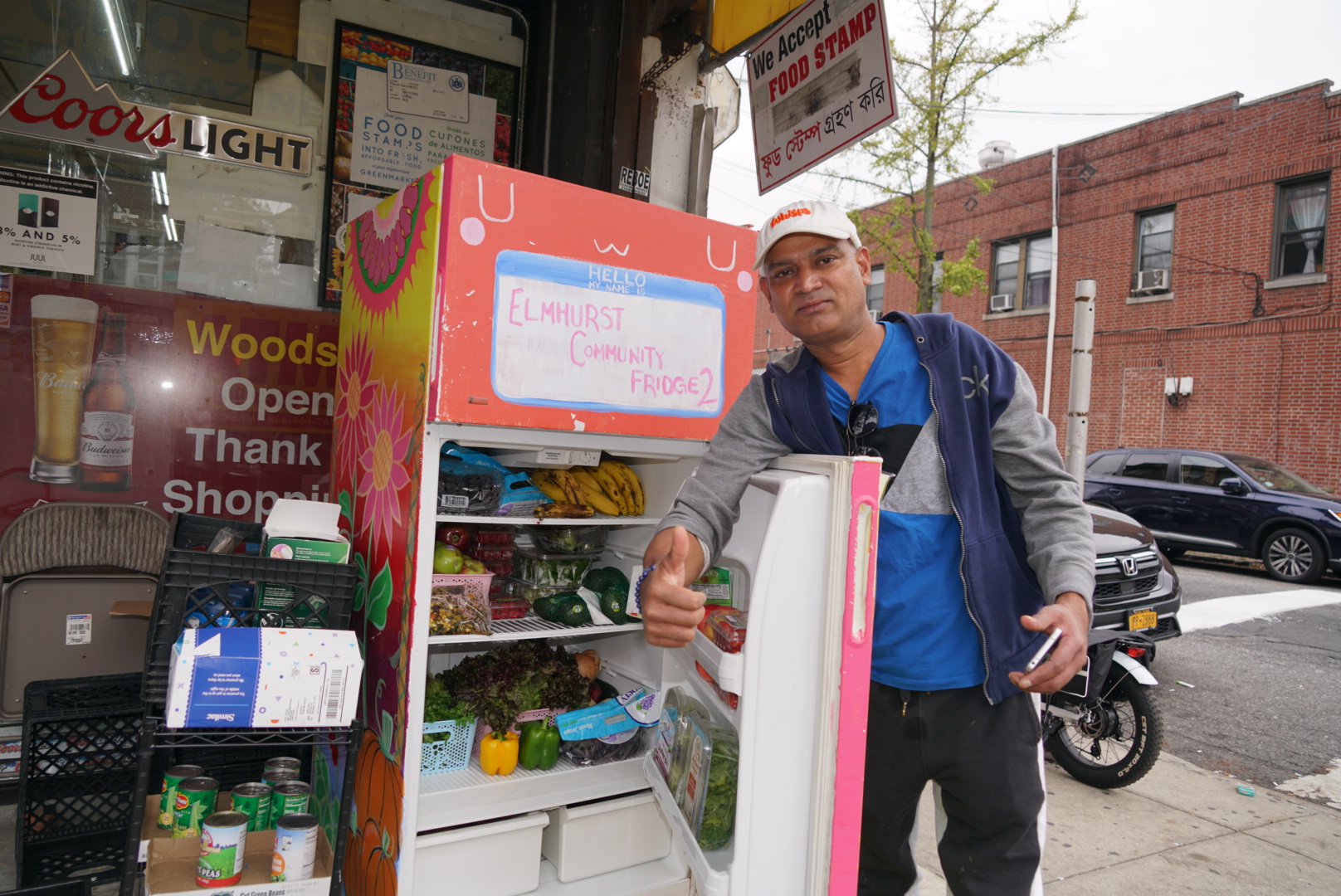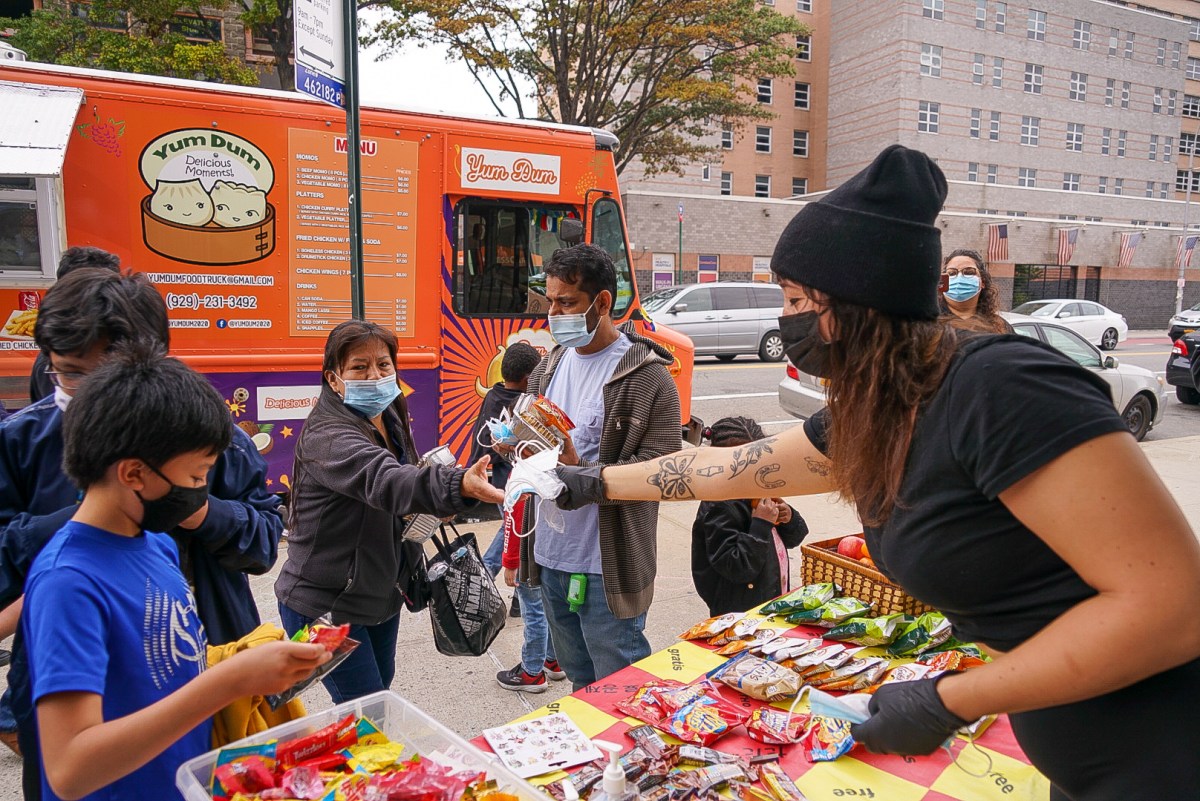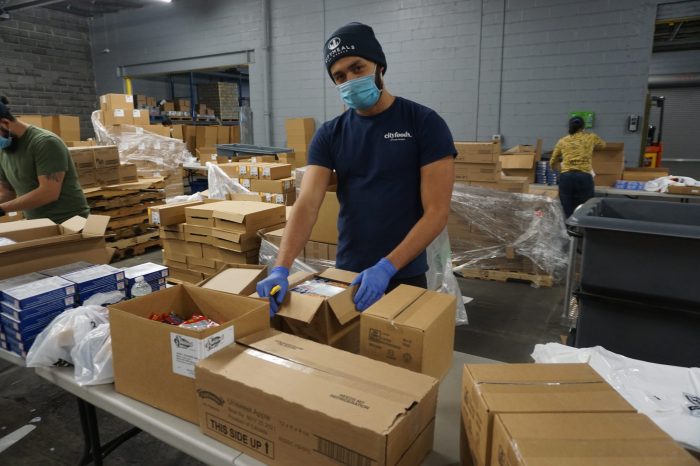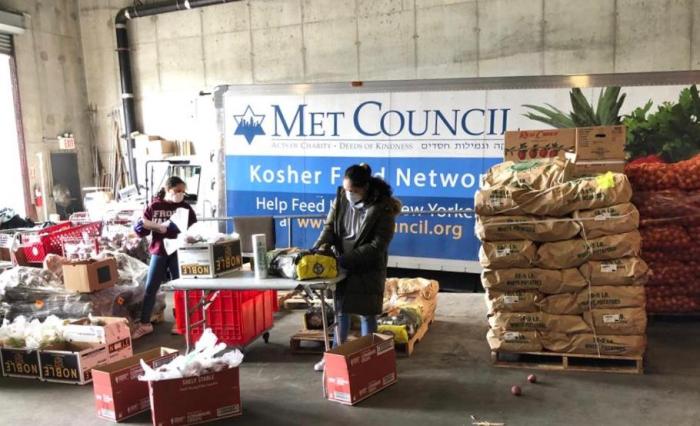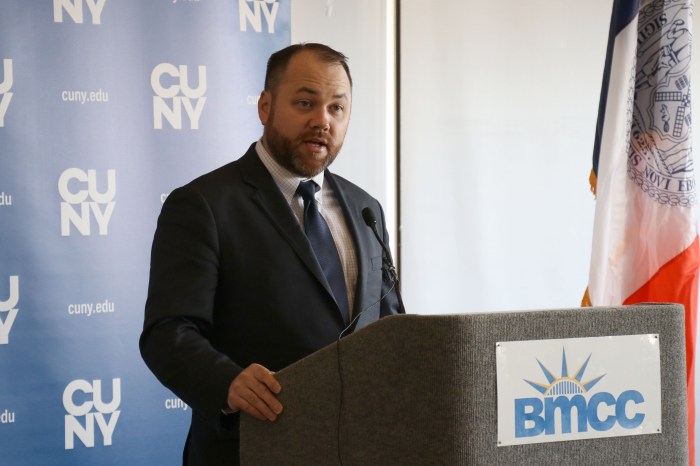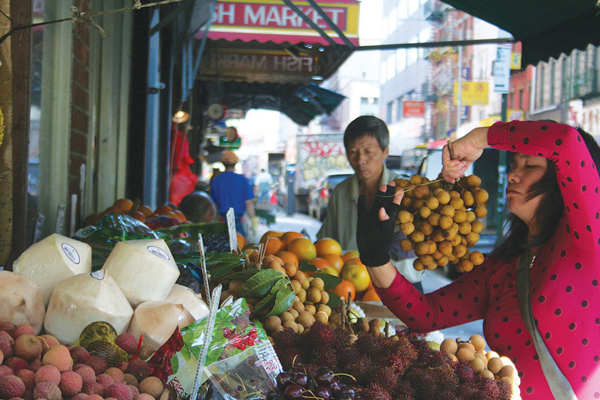BY DEAN MOSES AND ROBERT POZARYCKI
The COVID-19 pandemic only exacerbated New York City’s food insecurity problem — and with so many residents lacking proper nutrition, several Queens groups decided to serve a Sunday meal to residents in need.
The “Rally for Food Justice” not only fed individuals from around Elmhurst and Jackson Heights but also called to attention to the growing hunger problem in the country, as well as the new network of community refrigerators popping up on street corners that aim to help give the hungry something good to eat free of charge.
The event brought out scores of residents who received free, vegan meals provided by the organizers outside of Moore Playground, located across the street from Elmhurst Hospital. Residents also received snacks, water, hand sanitizer and masks from a “people’s bodega” set up during the rally.
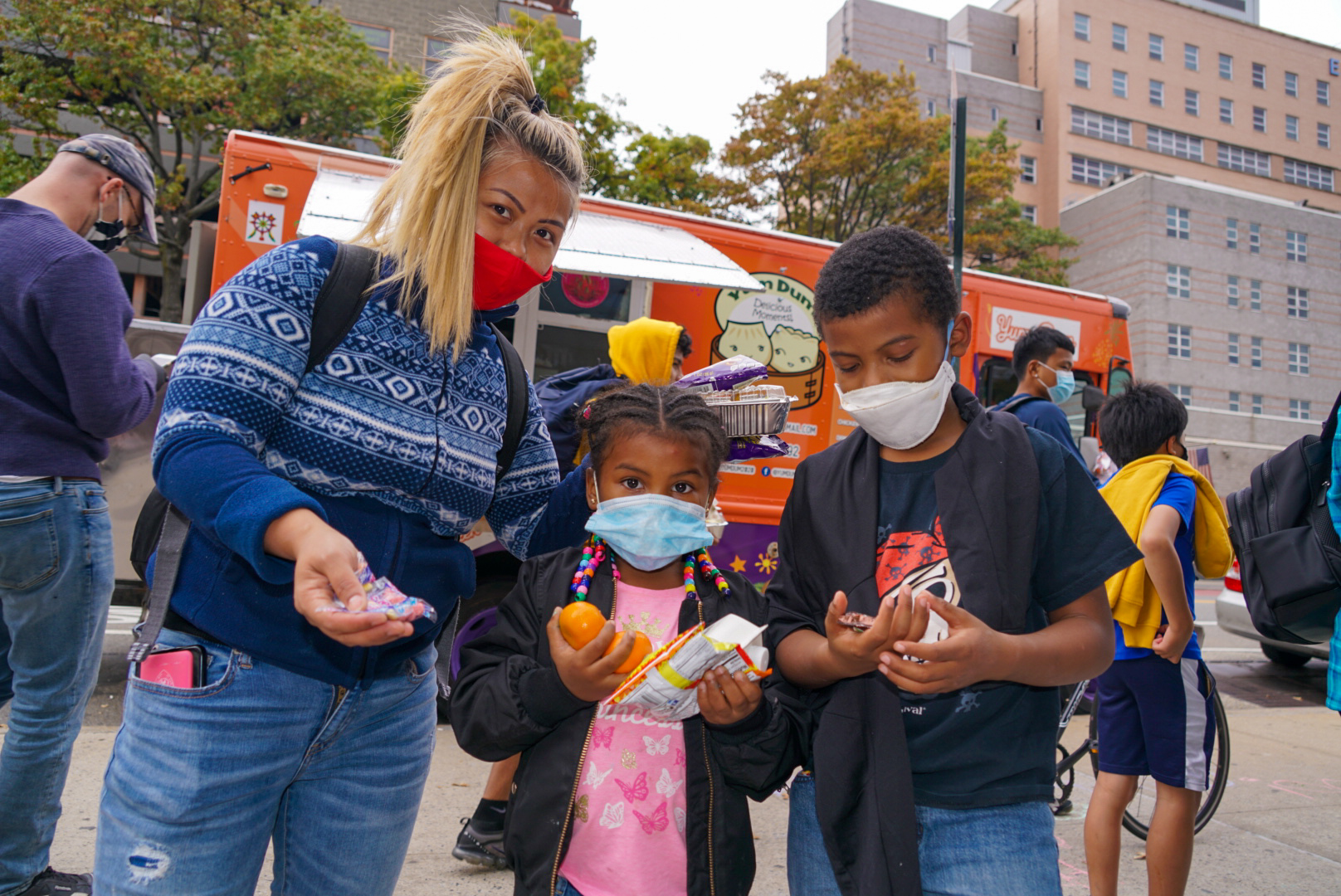
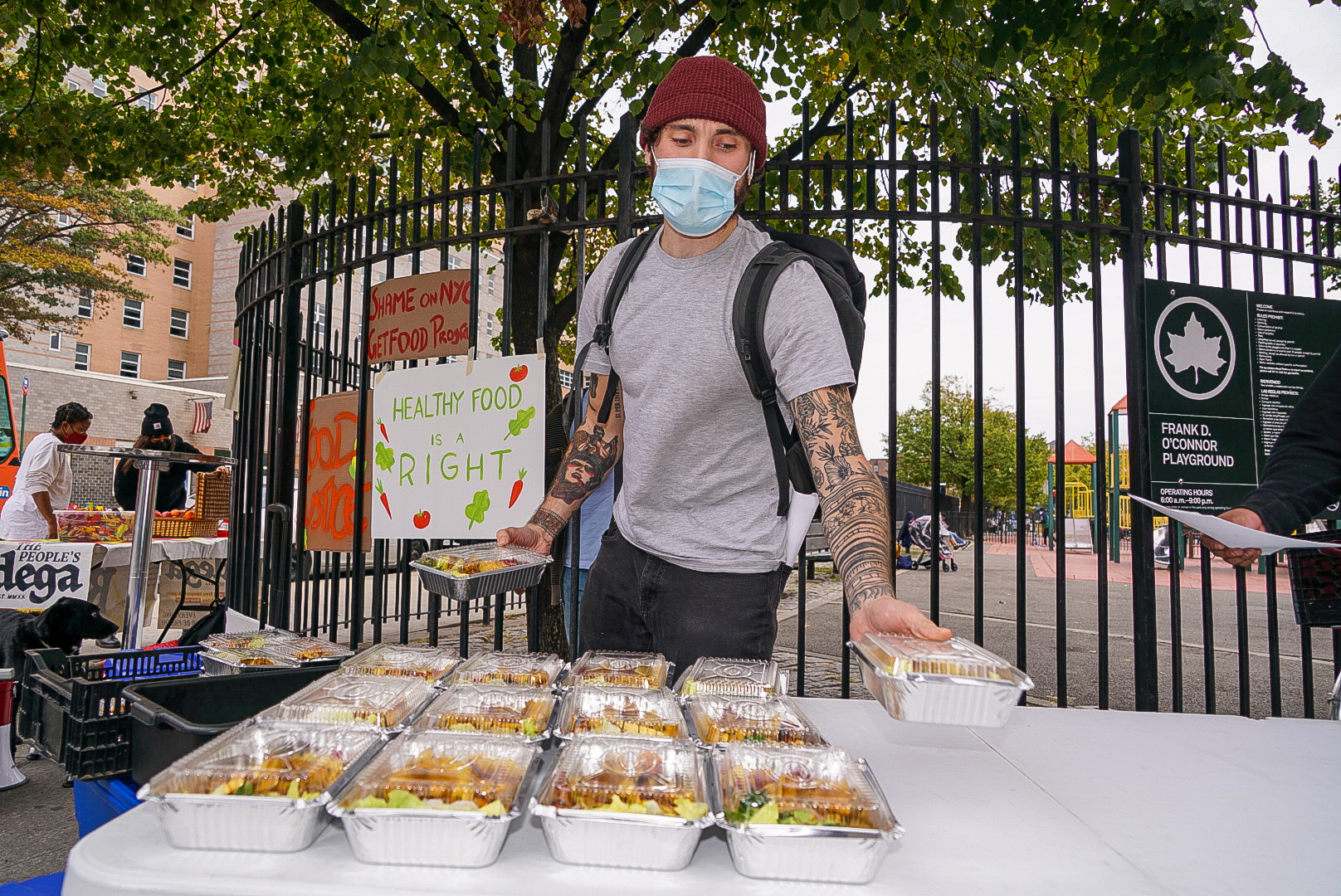
Volunteers from the rally’s sponsor organizations, including the Queens Liberation Project, Queens DSA Mutual Aid, Housing Justice 4 All, the Astoria Food Pantry and Queens Community Fridges.
As Trasonia Abbott of Queens Liberation put it, the event offered a chance to give back to a community in need. She also highlighted the problem of food waste across America.
“America has so much food. All the time, there’s so much food in this country, and we throw it in the trash,” Abbott said. “Every day, so much food gets made, and then tossed in the trash, and coffee is poured over it so homeless people won’t get into the trash to eat it. That’s f—ed up. So, we are giving away free food. … But any chance you get, you should give what you have back to the community.”
The organizers, in a press release, condemned governmental inaction in helping to bridge the food gap in New York. Several COVID-19 relief bills which could pour billions of dollars in new financial aid to New Yorkers in need have stalled in the Senate. The city’s emergency food program, organizers claim, has proven to be inadequate to the current need.
Dannelly Rodriguez of Housing Justice 4 All touched upon the disparity in his remarks.
“It’s been us coming together using the resources that we have after we had a government that has actively denied us the resources that we’ve needed over the years and especially during COVID,” Rodriguez said. “So, distributing this food isn’t charity, y’all. This is mutual aid, and mutual aid is political. When we live in a system that is racist… that puts rich people at the center of our policy, it’s up to us to put our resources together and feed our people, because nobody else is going to do it.”
As people have struggled with food insecurity during the pandemic, organizations have begun setting up community refrigerators. Abbott said they are a critical exchange point in the battle against hunger.
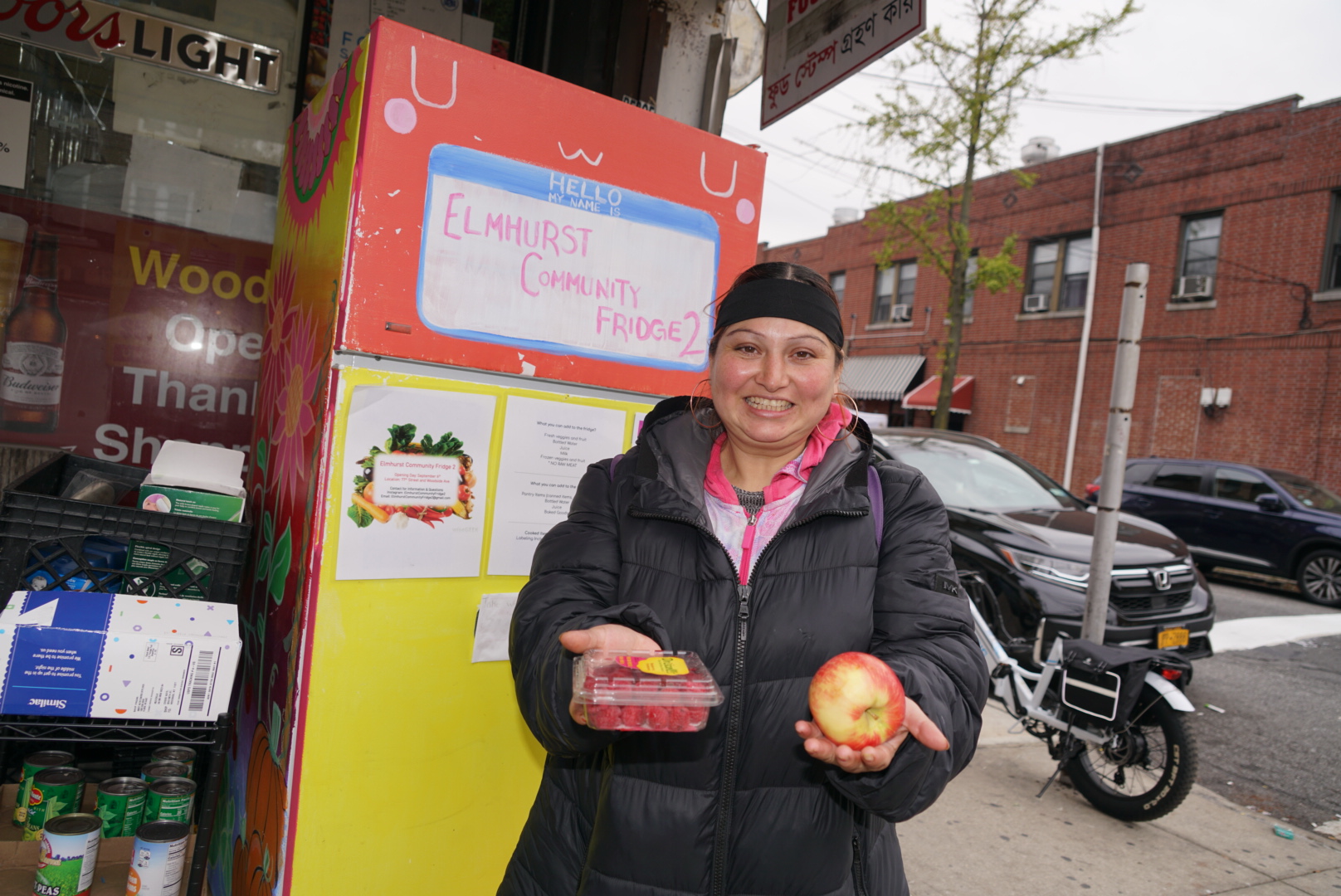
“You’re able to take what you need and leave what you can, and that’s the kind of approach that we should go into when we’re talking about food justice,” she said. “It’s not about ‘Oh giving, giving, giving.’ It’s not charity, it’s solidarity. We should all stand together and make sure we get the food and nutrition that we need.”
